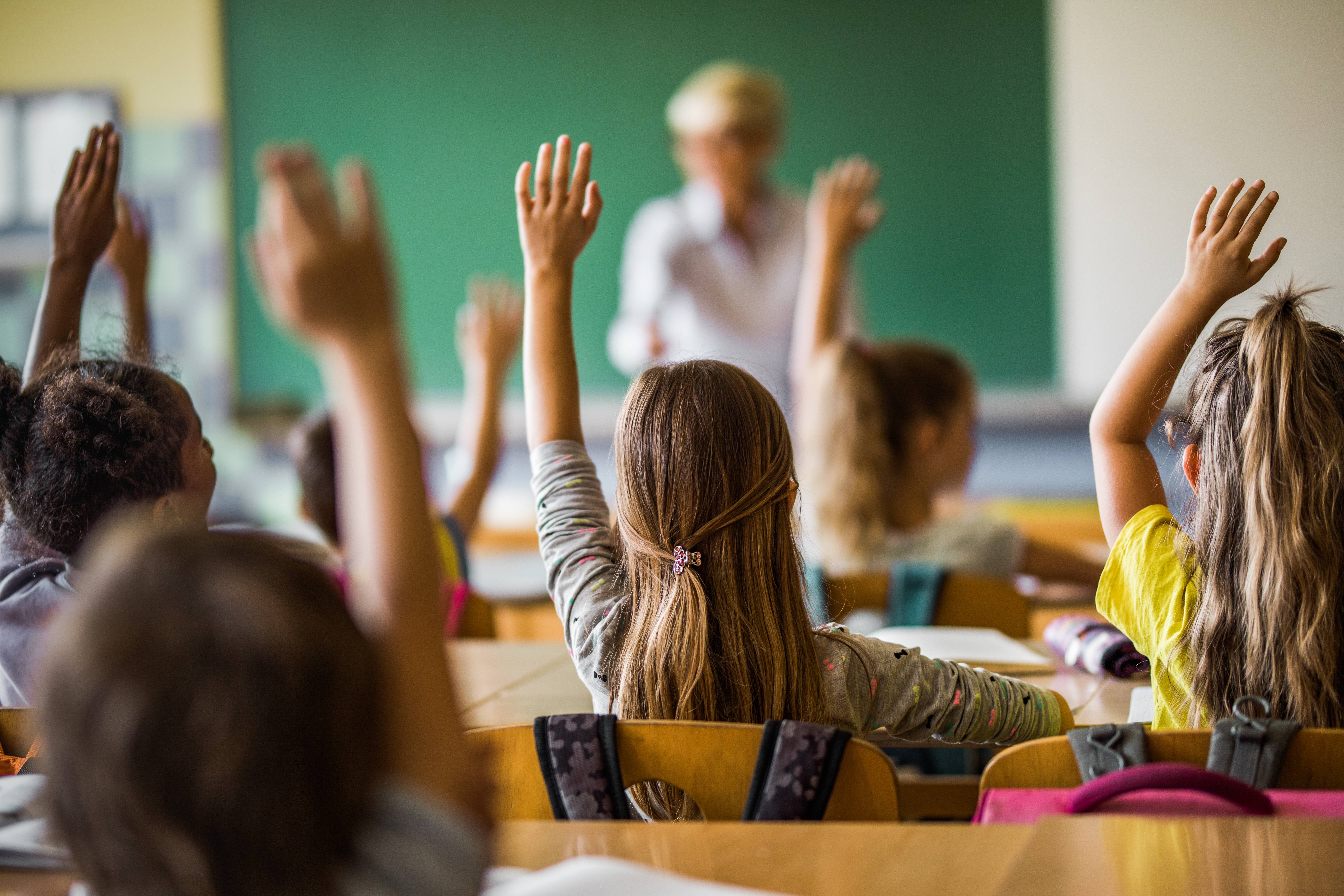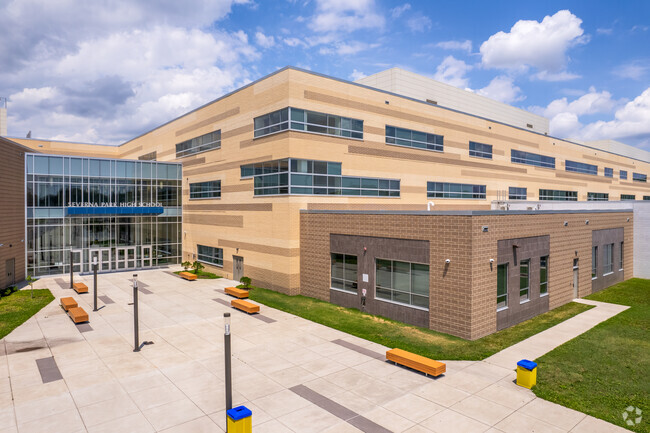The Function of Moms And Dads and Teachers in the Effort to Save Temecula Schools
The Function of Moms And Dads and Teachers in the Effort to Save Temecula Schools
Blog Article
Comprehending the Significance of Colleges in Kid Development and Neighborhood Growth
Schools serve as essential establishments for child growth and neighborhood development, supplying atmospheres where scholastic achievements are enhanced by the farming of social skills and exposure to varied viewpoints. These instructional setups not only advertise important thinking and efficient communication but additionally foster compassion via collaborative tasks. Additionally, schools' involvement with local communities with service-learning efforts enhances the bond in between family members and universities. This symbiotic connection highlights the relevance of schools in nurturing energetic citizenship and lifelong knowing routines. Nevertheless, what are the details systems by which these establishments achieve such profound influences?
Academic Achievement
Academic success offers as a keystone of child development, offering the structure whereupon future knowing and success are constructed. Colleges play a pivotal function in fostering this academic growth, supplying structured environments where kids can acquire essential expertise and cognitive skills. Standard educational program make certain that pupils gain effectiveness in core subjects such as mathematics, scientific research, and language arts, which are vital for both college and expert possibilities.
Along with imparting essential scholastic skills, institutions also cultivate critical thinking, analytic capacities, and intellectual curiosity. These cognitive competencies are essential for navigating complicated real-world scenarios and adapting to the ever-evolving needs of the modern office. Teachers, as facilitators of knowing, utilize varied pedagogical approaches to cater to diverse understanding designs, consequently taking full advantage of individual trainee capacity.
In addition, academic success is closely connected to self-confidence and inspiration. Youngsters who experience academic success are more probable to create a favorable self-concept and a lifelong enthusiasm for knowing. Schools also provide different resources, such as collections and modern technology, which additionally improve the educational experience and prepare trainees for a technologically sophisticated culture.
Social Ability Development
Beyond academic success, the role of institutions in social ability growth is indispensable. Schools work as a key place for kids to find out and practice necessary social skills such as collaboration, dispute, and interaction resolution. In the structured atmosphere of a classroom, pupils connect with peers, instructors, and various other institution team, supplying numerous opportunities to establish these essential abilities.
Effective social skill growth in colleges is promoted via team tasks, collective projects, and extracurricular programs. These communications assist pupils comprehend social standards, construct empathy, and cultivate a feeling of area. Group projects instruct trainees how to work together in the direction of a common objective, pay attention to various perspectives, and navigate arguments constructively.

The cultivation of social skills throughout institution years lays a structure for future individual and professional connections. Save Temecula Schools. As students mature, the capacity to efficiently interact and collaborate ends up being increasingly important, underscoring the school's important duty in holistic kid development
Exposure to Diversity
Exposure to variety his response in institutions is basic to cultivating a comprehensive state of mind and broadening students' viewpoints. Schools work as a microcosm of the wider society, and experiencing diverse cultures, languages, and socioeconomic histories within this atmosphere furnishes trainees with crucial skills for browsing an increasingly globalized world. This direct exposure motivates compassion, minimizes bias, and advertises common regard among peers.
Research study shows that pupils who engage with peers from diverse backgrounds show better analytic skills and creative thinking. This understanding of variety prepares pupils for future offices that worth multicultural skills - Save Temecula Schools.

Neighborhood Involvement
The advantages of varied classrooms extend beyond the school walls, cultivating a strong feeling of area interaction among trainees. By engaging with peers from various cultural, socioeconomic, and ethnic histories, students get a wider point of view and a recognition for variety. This direct exposure motivates them to become active residents who agree to add positively to their neighborhoods.
Colleges that emphasize neighborhood involvement usually incorporate service-learning tasks, which allow students to attend to real-world issues while applying scholastic skills. These jobs not only boost pupils' understanding of their coursework yet also impart a sense of responsibility and empathy. Partnerships between colleges and neighborhood companies give trainees with possibilities to take part in area events, further strengthening their function as positive neighborhood participants - Save Temecula Schools.
Additionally, adult and community participation in schools enhances the bond in between academic establishments and the neighborhoods they serve. Via these efforts, schools play an essential role in nurturing community engagement and fostering societal growth.
Lifelong Knowing Habits
Developing lifelong understanding practices is important for a youngster's constant growth and flexibility in an ever-changing world. Schools play a crucial role in instilling these behaviors by producing a setting that cultivates inquisitiveness, essential thinking, and a love for knowledge. Through extracurricular activities and varied curricula, educators urge pupils to discover various subjects, evaluate info critically, and apply their learning to real-world circumstances.

Furthermore, colleges provide a structured environment where children can develop self-discipline and time management abilities, both of which are vital for constant understanding. By stressing the importance of establishing goals, reviewing progress, and adjusting methods, universities prepare pupils to navigate the complexities of adult life, ensuring they remain long-lasting students and contributors to society.
Verdict
Finally, colleges are essential in cultivating kid development and area growth by offering atmospheres for academic success, social ability growth, and direct exposure to variety. Via collective tasks and interactions, institutions boost critical thinking, compassion, and interaction skills. Area engagement initiatives additionally reinforce the bond between local neighborhoods and academic organizations. Inevitably, colleges cultivate lifelong discovering routines, outfitting individuals with the required expertise and abilities to add favorably to culture.
In the organized setting of a class, trainees interact with peers, instructors, and various other institution personnel, providing countless opportunities to establish these important capabilities.
In essence, direct exposure to diversity within institutions not only improves private trainees however likewise strengthens the social textile of the area as a whole.
The benefits of varied classrooms expand beyond the institution walls, promoting a solid feeling of area engagement amongst students.Colleges that emphasize community engagement frequently incorporate service-learning tasks, which enable students to attend to real-world issues while applying scholastic skills. Partnerships between institutions and regional companies provide trainees with possibilities to participate in neighborhood events, further strengthening their function as proactive area visit homepage participants.
Report this page